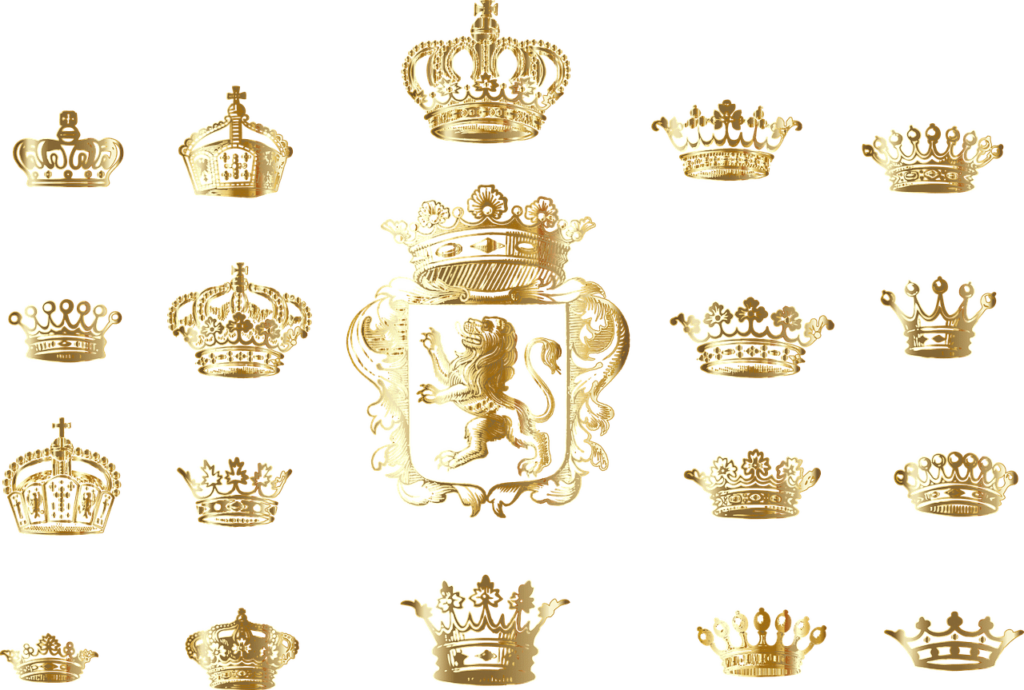Definition of Monarchy
Etymology of Monarchy: from the Greek mono, alone and archè, power, authority, command.
A monarchy is a political system where power is held by a single leader, the monarch or sovereign. Originally, this power was legitimized by a spiritual relationship that the monarch had with a deity.
Monarchical regimes can vary according to the powers held by the monarch, from all political powers to a symbolic role:
- Monarchy by divine right: its power emanates, “by the grace of God”, from the will of a divinity.
- Absolute monarchy: its powers are limited only by the “fundamental laws” (see below) and divine laws.
- Corporate monarchy: the monarch must obtain the approval of the corporations (in the Middle Ages).
- Constitutional monarchy: its power is limited by a constitution.
- Parliamentary monarchy: constitutional monarchy where the government is responsible to a parliament.
But: A monarchy can be parliamentary AND constitutional (example: Belgium)
Read also: Longest Reigning World Monarchs Ever (Emperor, King, Queen, Prince)
In France, in the Old Regime, the monarchy was absolute. There is no written constitution, but customary “fundamental laws”, superior to all other laws and which the king cannot change. The best known of these is the “Salic” law which excluded women from succession to the throne.
The dynasty designates the line of monarchs having the same ancestor (eg Merovingians, Carolingians, Capetians, Bourbons, Grimaldi, Windsor…).
Kings are monarchs who hold power for life hereditarily or sometimes electively. Some heads of state, designated by their peers (Malaysia, United Arab Emirates are also monarchs, as are emperors and, in the broad sense, any tyrant or dictator.
Read also: Political Systems in the Wolrd | Form of Governments
In Muslim countries
In Muslim countries, monarchical regimes can take the names of sultanate or emirate:
The sultanate is a political system similar to a monarchy: government where supreme power is in the hands of a sultan (the head of a Muslim state). The sultan can be an absolute monarch or with constitutionally limited authority.
The Emirate is also similar to a monarchy. Power here is in the hands of an emir (the ruler of a Muslim state); the emir can be an absolute monarch or with constitutionally limited authority.
What are the characteristics of the monarchy?
1. Regime in which political authority is exercised by an individual and his delegates (as opposed to aristocracy, democracy, oligarchy).
2. Political regime in which the holder of power exercises it by virtue of a proper right: divine right, heredity (as opposed to republic).
3. State having such a regime, kingdom.
Read also: Political Elites | Who are they? | The elites or the power elite?
List of monarchies in the world
Andorra
Antigua and Barbuda
Australia
Bahamian
Bahrain
Barbados
Belgium
Belgium
Belize
Bhutan
Brunei
Cambodia
Canada
Denmark
Denmark
Grenade
Jamaica
Japan
Jordan
Kuwait
Lesotho
Liechtenstein
Luxemburg
Malaysia
Morocco
Netherlands
New Zealand
Norway
Norway
Oman
Papua New Guinea
Qatar
Saint Kitts and Nevis
Saint Vincent and the Grenadines
Samoa
Saudi Arabia
solomon islands
Spain
Spain
St. LUCIA
Swaziland
Sweden
Sweden
Thailand
Tonga
tuvalu
UK
United Arab Emirates
Vatican
European Noble Ranks | What is the hierarchy of titles in Aristocracy?
Sources: PinterPandai, Britannica

